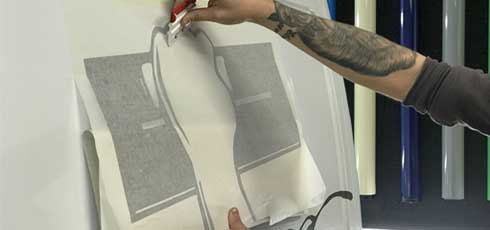If you’re a sole trader then your business is slightly different to other types of businesses, as it only exists as a trading medium. This means that legally there is no difference between yourself and the company.
You can take a look at our guide to applying for a lease as a business if you are not a sole trader. Or you can also look at our business car leasing explained guide.
Applying for finance as a sole trader is the same process as applying for finance as any other business. Just scroll down tothe Application Process Section to see a full breakdown of how this works.

There are a lot of benefits to leasing a vehicle rather than buying it outright as a sole trader.
It will be your responsibility to arrange fully comprehensive insurance for the vehicle.
You might decide to opt for a maintained lease, and if you do then you’ll just need to ring the contact number provided by your funder to arrange any servicing or maintenance.
If you decide against adding a maintenance package to your lease agreement, then it will be your responsibility to arrange servicing in line with the manufacturer and funder’s guidelines. You will also be responsible for any maintenance work required on the vehicle.
It’s important to remember that with a lease car you have to hand the vehicle back at the end of the lease. For more information on this just scroll down to our Fair Wear and Tear section.
If you are applying for lease finance as a sole trader, then you might want to consider if it is best to apply for a personal lease or business lease. There are a number of factors that you will need to consider when deciding which option is right for you. For example if your business has not been trading for long it might be easier to be approved for a personal lease. Take a look at our Guide to Personal Leasing to see if this would be the better option for you.
As part of the application process we will need some information from you about yourself and the business. We will ask you to complete a proposal form with all the required information, but we’ve included a list of information we will need below for you.
Please note that as part of the application process a credit check will be carried out. You might also be asked to provide proof of the business’ income, which could be in the form of the latest accounts, recent bank statements and proof of address or ID for yourself.
As well as your finance application the funder may consider:

It’s important for businesses to promote their brand.
A lot of businesses choose to have signage on their vehicles, whether it’s a car or van, to advertise the company.
You can still apply sign writing to a lease vehicle, but you must make sure that this is removed before you return the vehicle and there cannot be any damage caused by it.
With a lease vehicle you have to give the vehicle back to the lease company at the end of your contract. It is important for you to consider this when deciding if a lease is the right choice for your business vehicle.
All funders have guidelines as to what condition the vehicle should be returned to them in, which are based on the BVRLA’s guidelines.
These guidelines cover everything from sign writing, the mechanical, interior and exterior condition and documentation for the vehicle.
When you start your business and declare yourself as your own boss, you’ll be automatically classified as a sole trader, no matter whether you’ve informed the HMRC or not yet.
You’ll qualify as self-employed if you:
Self-employed car leasing can be great for people who run their own businesses or work as independent contractors. If you own a small business and require a vehicle for your operations, leasing can be a cost-effective option. It allows you to access a vehicle without a large upfront investment and offers tax advantages as lease payments can often be deducted as a business expense.
If you’re leasing for a business, which includes a self-employed business, you won’t need to pay company car tax. Instead, this will be the responsibility of the funder, as they are the owner of the vehicle.
To determine whether or not a self-employed leasing deal is right for you, you should consider:
If you’re self-employed and acting as a sole trader, you will have the right to apply for a business lease deal. As part of the application process, you will be required to provide some documents so that we can assess your individual eligibility, such as full bank details, proof of ID, the type of business and the annual turnover.
You’ll also be subject to a personal credit check, to help assess credit strength and the potential risk. If you pass this check then you’ll be able to fully apply for a self-employed lease deal.
Is a self-employed lease better than a personal lease?
This will depend entirely on the current scenario for your business. A business lease is often the better option when your business is VAT registered at the standard rate since you’ll be able to gain more benefits and reclaim VAT expenses associated with the lease. If you go for an electric car leasing deal, then you can save on tax for a low-emission vehicle too.
If your business is extremely new or you have an issue with your business documents, you could instead consider a personal leasing deal.
If you have any more questions about leasing as a sole trader then just give us a call on 03302210000 and one of our Leasing Consultants will be happy to help.
Check out one of our helpful guides or our explaination of leasing to get all your questions answered.
You can unsubscribe at any time